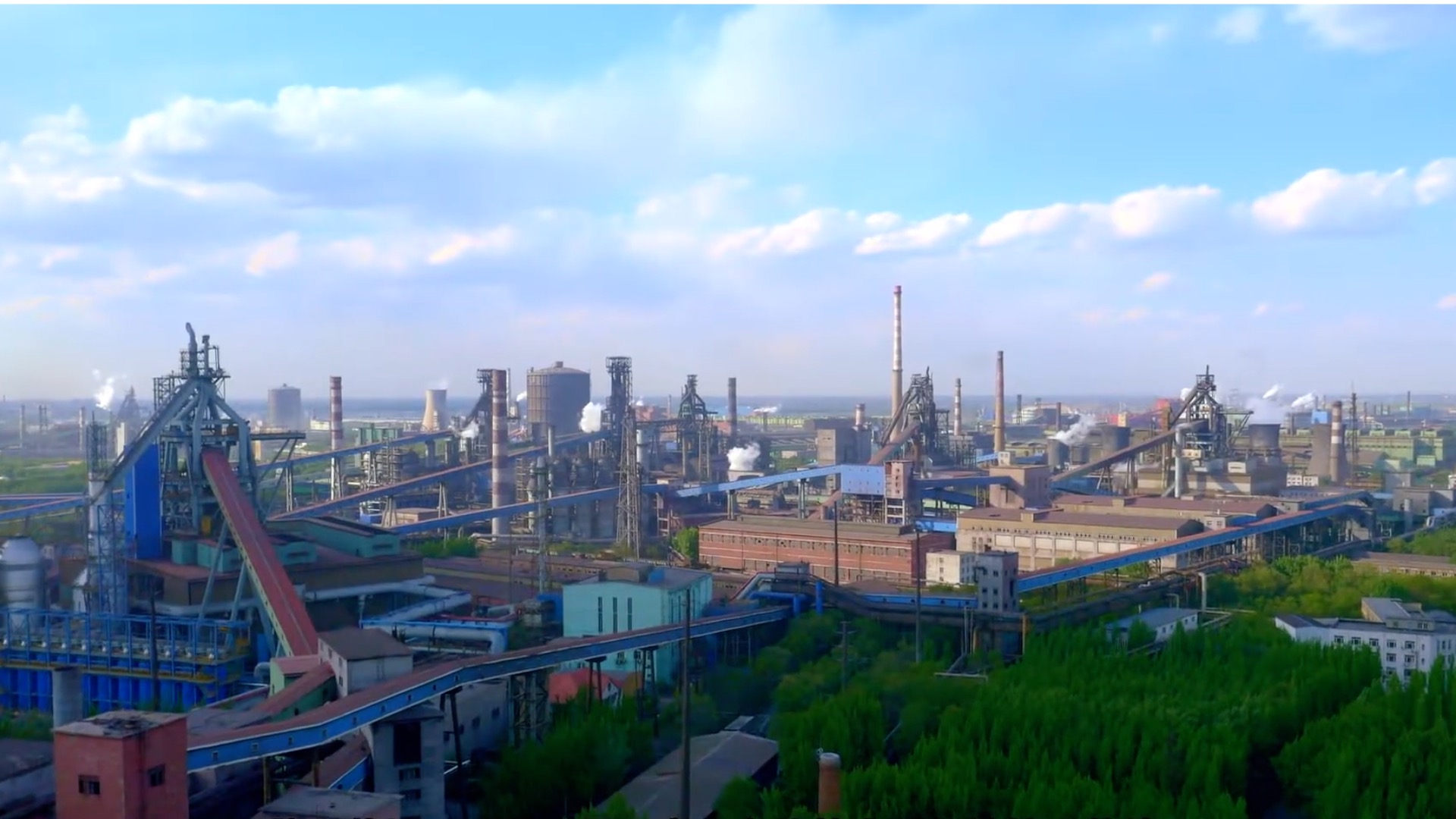Digitalization is helping promote green, intelligent and precision manufacturing in China's steel industry.
Walking around the Ansteel Group, one of China's oldest steel mills located in northeast China's Liaoning Province, you can hardly see any workers.
Pretty much everything, from delivering, loading to storage, was done manually before. But nowadays, the whole coating process is automated, Zhang Minggang, production scheduling manager in the coating workshop of the company, told CGTN.
As a pillar of society, steel-making can be very complex because all production steps are interdependent. This makes it challenging to adopt digitalization for efficient production management.
Ansteel rolled out a "digital manufacturing" plan prioritizing advanced technology and equipment, a stable supply of resources, a higher level of automation and emissions reduction. The group's digital transformation calls for an integrated solution, building a system that connects devices, machinery and people.
Changes are seen not only in the production plants but in areas like research and development as well.
Yan Ling, deputy director of an offshore steel institute of Ansteel Group, told CGTN that it took them five years to establish a system that fits into every aspect of research and development.
"Under the new platform, metallurgical testing, material design, evaluation and standard setting are hooked together."
Apart from the production plants, the group has also upgraded its subsidiaries' compliance program to reduce the risk of legal action or regulatory penalties for subsidiaries that comply with legal and ethical standards.
"The new system upholds the principle of building one unified platform, sharing one database and adhering to the same standards. The evaluations given by the program now play a crucial role in decision-making," said Zhang Zhengle, deputy director at the corporate compliance department of the group.
According to China's State Council, by 2025, the sector's innovation capacity will be significantly enhanced, with the research and development investment, the numerical control rate of key processes and the digitalization rate of manufacturing equipment reaching 1.5 percent, 80 percent and 55 percent, respectively.


